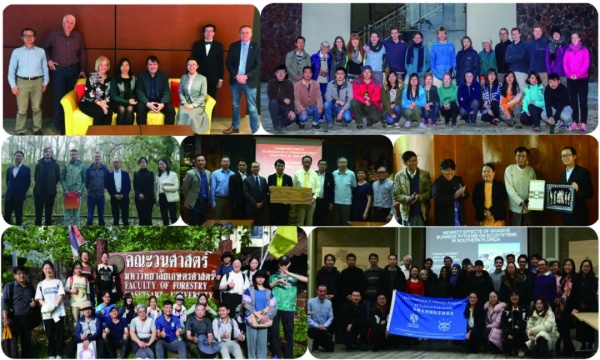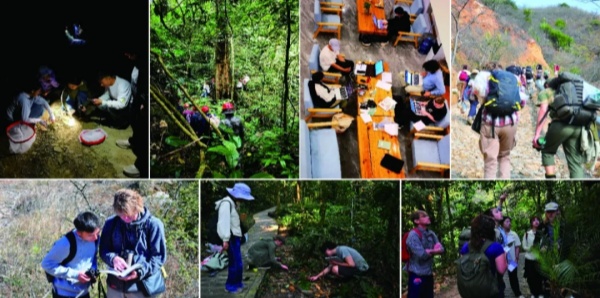YNU School of Ecology & Environmental Science forges ahead
The School of Ecology and Environmental Science at Yunnan University, or YNU – located in Kunming, capital of Southwest China's Yunnan province – was founded in 2014 and it spearheads the university's development of "first-class disciplines" in the fields of endeavor.
It offers three undergraduate programs – Ecology, Environmental Science and Engineering, as well as Plant Science and Technology – with two being recognized as national first-class undergraduate disciplines.
Boasting 129 faculty members, including 36 professors and 31 PhD supervisors, the school offers a comprehensive pedagogical system, from bachelor's degrees to postdoctoral levels.

The faculty and students at the school eagerly participate in discipline exchanges and cooperation events. [Photo/WeChat account of Yunnan University]
Drawing on over 70 years of experience in ecological education, the school has pioneered a "New Ecology" education model that addresses complex, systemic ecological issues through interdisciplinary training.
Collaborating with prestigious institutions like Peking University, Fudan University and universities in Canada and Sweden, it integrates practical and theoretical knowledge across multiple disciplines to nurture highly adaptable talent.

Students from the school undertake field research. [Photo/WeChat account of Yunnan University]
The Ecology program prioritizes biodiversity conservation and mountain and river ecosystem restoration – supporting China's ecological civilization goals and preparing students with a global outlook.
The Environmental Science and Engineering program focuses on regional environmental challenges, specializing in water pollution control and soil remediation. Meanwhile, the Plant Science and Technology program emphasizes innovative agricultural applications in plateau environments, fostering top-tier agricultural scientists.
The school is widely said to have achieved notable success, with over 95 percent of graduates finding employment. Many earn national awards in innovation and environmental competitions, underscoring its role as a cradle for future ecological leaders.
All rights reserved. Presented by China Daily. 滇ICP备12004993号-2








